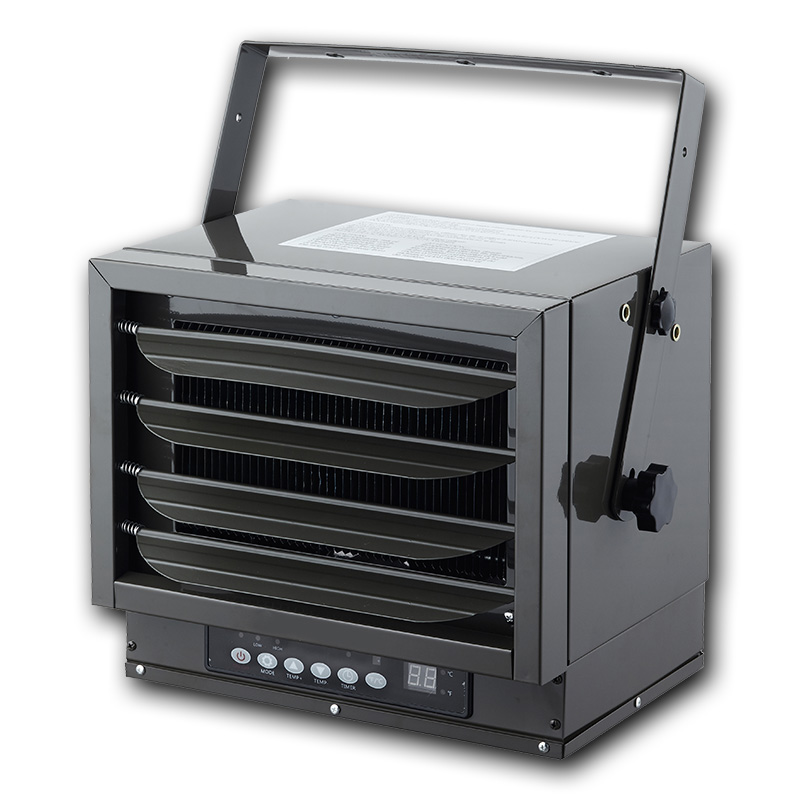Industrial heaters play a crucial role in temperature control and process optimization across various industries. Here are some specific ways in which they contribute:
1.Precise Temperature Control:
Industrial heaters are equipped with advanced temperature control mechanisms, such as digital thermostats and sensors, ensuring precise temperature regulation within tight tolerances. This level of control is vital in industries like pharmaceuticals and electronics manufacturing, where even minor temperature fluctuations can impact product quality and yield.
2.Optimized Chemical Reactions:
Industrial heaters are instrumental in facilitating controlled and optimized chemical reactions. By maintaining specific temperatures, these heaters enable chemical processes to occur at optimal rates, leading to higher yields, reduced by-products, and improved overall efficiency. This precision is critical in industries involved in pharmaceuticals, petrochemicals, and specialty chemicals.
3.Material Processing:
In industries dealing with metals, glass, and ceramics, industrial heaters are employed for tasks like annealing, tempering, and sintering. By reaching and maintaining precise temperatures, these heaters enhance the material's properties, ensuring desired hardness, durability, and structural integrity. This is especially crucial in aerospace, automotive, and construction sectors.
4.Food Processing:
Industrial heaters in the food industry are designed to meet stringent hygiene and safety standards. They are utilized in processes like baking, pasteurization, and sterilization, ensuring that food products are heated uniformly and at the right temperatures. Proper temperature control not only guarantees food safety but also extends shelf life, maintaining product quality for consumers.
5.Drying and Curing:
Industrial heaters play a pivotal role in drying and curing applications across sectors like textiles, printing, and coatings. By generating consistent and controllable heat, these heaters accelerate drying processes, enhance adhesion, and improve the overall quality of finished products. This is essential in industries producing textiles, printed materials, and coated surfaces.
6.Plastic Molding:
Industrial heaters are indispensable in plastic molding processes. They melt raw plastic materials to a precise temperature, ensuring proper viscosity for molding. Different plastics require specific heating profiles, and industrial heaters are engineered to deliver accurate and uniform heat, contributing to the production of intricate and high-quality plastic components used in various applications.
7.Environmental Control:
In HVAC systems, industrial heaters are integrated to provide comfortable indoor temperatures. They are equipped with sophisticated controls and safety features, ensuring reliable operation while optimizing energy efficiency. Additionally, industrial heaters are utilized in environmental chambers, enabling researchers and manufacturers to simulate a wide range of temperature conditions for product testing and validation.
8.Oil and Gas Industry:
Industrial heaters are deployed in the oil and gas sector for processes like crude oil heating and distillation. By maintaining specific temperatures, these heaters reduce the viscosity of crude oil, allowing for easier transportation through pipelines. In refining processes, industrial heaters aid in the separation of different fractions, optimizing the production of valuable fuels and petrochemical products.
9.Water Treatment:
Industrial heaters are employed in water treatment plants for disinfection purposes. They ensure that water is heated to the appropriate temperature, enhancing the effectiveness of chemical disinfectants. This precise temperature control is vital in ensuring the safety and potability of treated water, meeting regulatory standards and safeguarding public health.
10.Semiconductor Manufacturing:
Industrial heaters are utilized in various stages of semiconductor manufacturing processes. They are critical for diffusion, oxidation, and annealing steps, where controlled heating is essential to modify the properties of semiconductor materials. By maintaining specific temperatures within ultra-high vacuum environments, these heaters contribute to the fabrication of advanced integrated circuits and electronic components used in modern technology.
CZ230ER 7500W Digital Fan-Forced Ceiling Mount Heater






